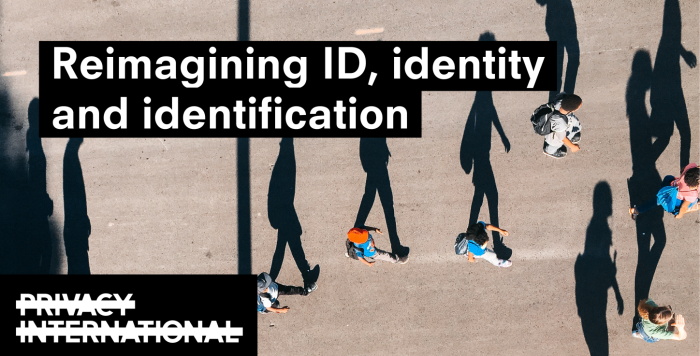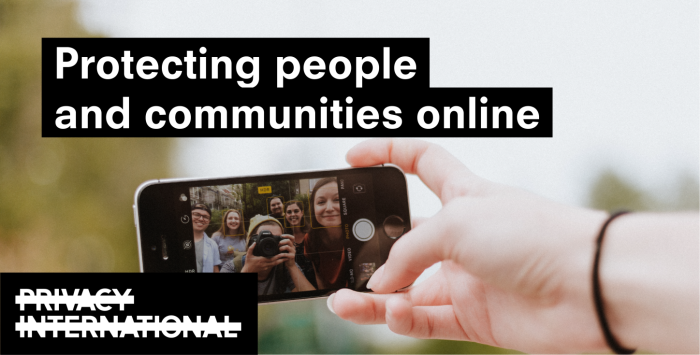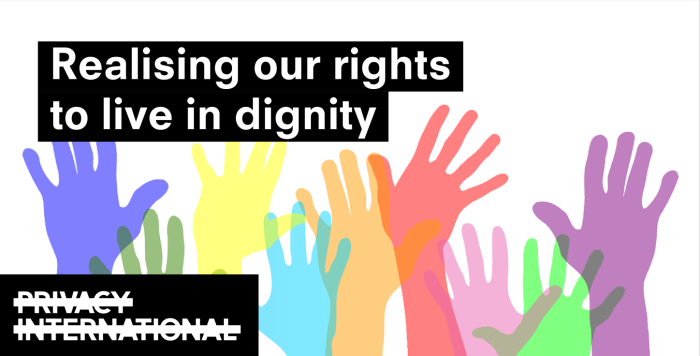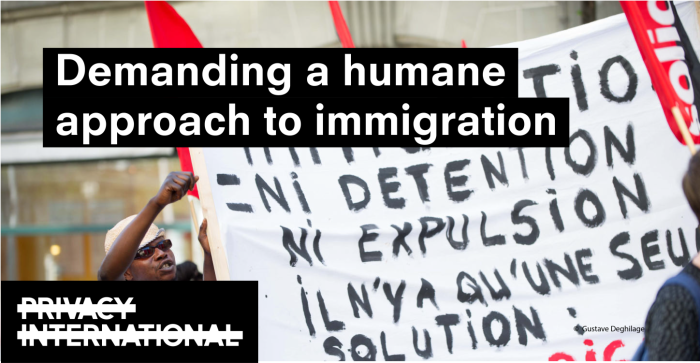PI presents our strategy for ‘Safeguarding Peoples’ Dignity’

Whilst innovation in technology and data processing have provided individuals and communities with new opportunities to exercise their fundamental rights and freedoms, this has not come without risks, and these opportunities have not been enjoyed by all equally and freely.
Our relationships and interactions with governments and industry have become increasingly dependent on us providing more and more data and information about ourselves. And, it’s not only the information we provide knowingly that is integrated into our relationship with these systems. Because of the way they are designed, every single interaction generates and process vast amounts of data about the transaction itself.
Our agency and autonomy, as individuals or communities, varies as those power dynamics often mean that we are merely passive actors in a pre-defined system, the rules of which have been set by others. And there are few or no safeguards to rein in the potential for surveillance exploitation, which, instead of empowering us, these systems are exposing us to emerging threats and risks. This is of particular concern for people and communities who are inherently disadvantaged within our socio-economic and political ecosystem.
Why it matters
There are instances of population control and exclusion through the deployment of rigid ID systems. The move towards digital government services and governance is enabling the control, surveillance and profiling of all of us and in particular people in vulnerable positions, such as that seen in welfare delivery and for immigration purposes. There are also on-going concerns around groups in society being subject to unwarranted risk, because of the way the online ecosystem is designed and regulated. From activists and human rights defenders being targeted online, LGBTIQ+ people being tracked and attacked, and migrants and recipients of humanitarian aid being exposed to heightened risks because of their digital data trail.
But today we are taking a stand and we are rejecting this status quo. It can be different.
Innovative solutions can be designed to empower and serve individuals and communities, rather than aggrandise state and corporate power.
Our interventions
A new approach to data and technology must be established to make this a reality and we've decided to approach it through four strategic interventions, which will challenge us to rethink how we approach change, how we work with others and how we tell our story.
Reimagining ID, Identity and Identification: An identity system should give people the ability to make and prove claims about themselves without divulging any unnecessary information to any party, free from concerns about being tracked, monitored, and having data exploited for commercial purposes.
Protecting people and communities online: Services should empower individuals and communities and provide them with the tools to enjoy and fulfil their fundamental rights and freedoms.
Realising our right to live with dignity: Technology can help governments to tackle their obligations to realise economic, social and cultural rights but safeguards must be put in place to ensure individuals and communities can enjoy these rights with dignity.
Demanding a humane approach to immigration: There is a need for a more humane approach to immigration based on the principles of fairness, accessibility, and respect for human rights.
What's next?
Over the next few years, you will see us fighting anew so that all peoples can enjoy their fundamental rights equally, freely and with dignity.
We invite you to follow our campaigns and we hope that you will join us.







